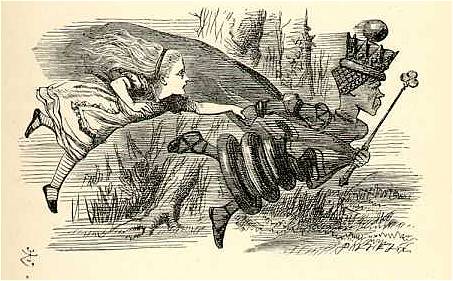Today I want to comment on those people in our schools, even whole schools, that are being left behind. Chances are that by blogging about this, I am preaching to the converted. However dear converted, if you agree with what I say here, consider printing a copy and leaving it strewn across the staff room, in someone's (or everyone's) pigeon hole or wrapped in a bow with a chocolate attached on a someone's desk.
The last 15 years has seen the introduction of NCEA, a new curriculum and national standards in New Zealand. As well as this, there has been more schools that have introduced bring your own device and other technology related changes including email taking on a central role in teacher's lives. We have also seen the introduction of more and more modern learning environments and the arrival of MOOCs (massive open online courses, often free courses that allow anyone from any part of the world free/cheap access to courses from Stanford, Harvard, Oxford, Yale and more). There is no question about it, change is non stop (for more about this read my post about the role of 'change' in the future of education). For some, all these changes might feel like a passing fad, and that there is no need for them to invest too much time or energy into considering the effect of these. There is however one change that I hope that fewer educators might stop ignoring, the increasing need to be connected. Let me explain.
- Being a connected educator means that you are part of learning conversations with those inside and outside of your organisation. Or as the study by Forte et al. puts it ".... through Twitter, teachers forge and maintain professional ties outside their local schools and, in doing so, become conduits for new practices and ideas to move in and out of their local communities ... teachers are using Twitter as a place to share resources and to make and respond to others’ requests for information." Hence, if you are not part of these conversations, it is likely that you are missing out on the distribution of effort that happens through being connected. It means you are less likely to know about international trends and influences that are or should be impacting the day to day in your classroom and school.
- As well as not being part of the sharing, curating, discussion that happens when you are connected, it is likely that you are relying on those people in your office or your school to challenge and develop you as a professional. Chances are that you are stuck in an echo chamber, rarely having your views challenged by those outside of your organisation. Chances are, your whole organisation might be stuck in an echo chamber, reinforcing its own misconceptions. Chances are, that you are in a bubble, unaware of how the world outside education has fundamentally shifted, unaware that the job market, the value of a university degree, society, has changed more than any one person can possibly hope to know. Examining change in today's world is like "when we try to pick out anything by itself, we find it hitched to everything else".
- Chances are, that if you are not connected, you are likely to fall behind in both the conversations that discuss and consider new practices and ideas, but also that you are likely to constantly feel the agitation and stress from always being reactive, always being on the back foot. It is Lewis Caroll's Red Queen in education, you have to keep running just to keep up. When you stop running, you are left behind.
 |
If you want to get somewhere else, you must run at least twice as fast as that!" - Lewis Caroll
|
You see, being a connected educator is absolutely critical.
If you are not yet connected. Make sure you join your country's education Twitter chat. Join the great Google+ communities, attend the range of free EdCamps on offer across the world. Whatever you do, get connected. If you are in New Zealand, join #edchatNZ (see www.edchatNZ.com) and the range of other great Twitter chats we have. Join the Pond. Educate yourself dear educator about what it means living successfully in a connected society, leveraging the network for your and your colleague's benefit.
References
Daly, A. J. (2010). Social Network Theory and Educational Change. Harvard Education Press. 8 Story Street First Floor, Cambridge, MA 02138.
Forte, A., Humphreys, M., & Park, T. H. (2012, June). Grassroots Professional Development: How Teachers Use Twitter. In ICWSM.
Snyder, S. (2013). The simple, the complicated, and the complex: educational reform through the lens of complexity theory.
Claxton, G. (2013). What's the point of school?: Rediscovering the heart of education. Oneworld Publications.
Cross post from @MissDtheTeacher's blog.
Cross post from @MissDtheTeacher's blog.

This is my first time reading Edchatnz, quite a compelling argument. I feel encouraged to up my connectedness.
ReplyDeleteYet another reason to jump onboard with #edchatNZ... exciting stuff!
ReplyDeleteTwitter lets you connect with people, express yourself, and discover more about all the things you love.For those who don’t know what a Twitter chat is, it is a way to bring together people from across the globe.
ReplyDeletechat with twitter friends
Video call with twitter friends
I feel encouraged to up my connectedness.
ReplyDeletegoldenslot mobile
gclub
บาคาร่าออนไลน์
gclub casino
การเล่นของค่าย pg slot เว็บ PG เว็บเกมที่มีเกมให้ได้ทดลองเล่นฟรี แล้วก็ยังเป็น PG SLOT รูปแบบใหม่ตอนนี้ของปีแตกง่ายแม้มีทุนน้อยก็เล่นได้
ReplyDelete